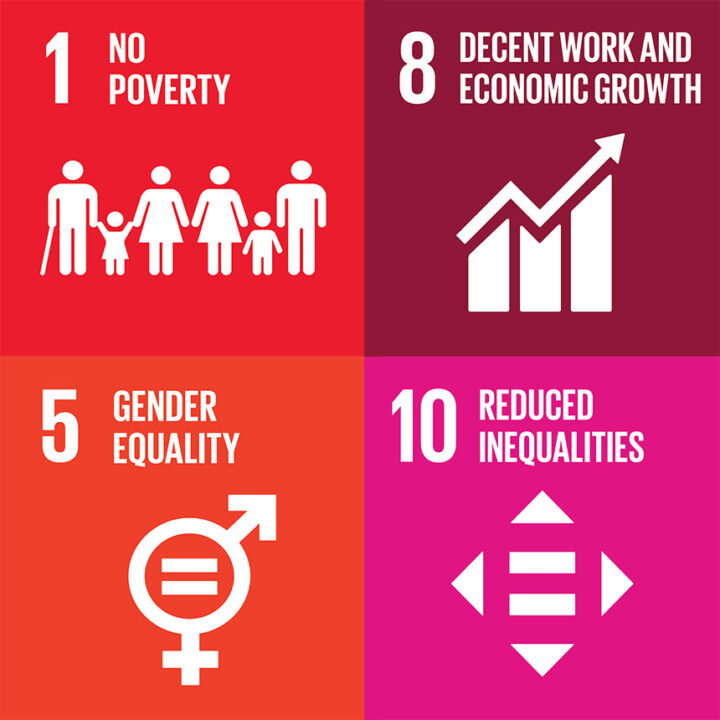The Social Entrepreneurship Program
We all care about the world. We all want to improve it. And we all want to make a difference to people and the planet. Here’s how H&M Group works with social entrepreneurs in developing countries so that we and our customers can make a genuine impact together.
We not only want our products to look good. We want them to do good. So how do you bring about social change, help to improve the lives of underprivileged people and make the world a better, more sustainable place? How can H&M Group offer customers the kinds of products that ultimately help to address the United Nations global Sustainable Development Goals? These are among the big burning questions that we are keen to address – because we care, and we know you do too.
The answer to these questions is that we can make a difference by buying and selling products supplied by entrepreneurs who run businesses that have a social objective and a focus on societal change – otherwise known as social entrepreneurs.
Business for good: supporting education, healthcare and gender empowerment
We encourage high-quality craftsmanship and cultivate an entrepreneurial spirit among people who are concerned about the welfare of others in their own communities. Often female, social entrepreneurs invest some of the profits from their businesses in helping local communities in the fields of education, healthcare and gender empowerment. They can create life-changing opportunities for marginalised groups including other women and people with disabilities, for example, and help to alleviate poverty.
We have discovered that we can make a difference and enable people in developing countries such as India, Uganda and Rwanda to bring their products to the global market. Because this allows the social entrepreneurs we buy from to develop their businesses and create positive change in society.
Telling the story: it’s all about people
Social enterprise products – unique items produced locally – are soon available through some of our brands. Initially, the brand Arket will offer a small range of products from Rwanda and Uganda, and at H&M Home, customers will also find lamp shades covers made by local people from Tamil Nadu in India – furnishings that are a study in Asian aesthetics and craftsmanship, created by skilled artisans like Sadia working for a Bengaluru-based social enterprise called Bangalore Greenkraft.
How conscious consumers become change makers
Part of our mission is to act as a socially responsible design group, and that means encouraging our customers to make sustainable choices.
Being open and transparent about where our products come from and what they are made of, we aim to raise awareness of social entrepreneurship. We try to tell a story, labelling each hand-made item and telling you the name and background of the person who made it.
It’s when you feel inspired to buy these beautiful products that we can help social entrepreneurship enterprises to grow. So, when you make a purchase, you’re not only consuming with a clear conscience, you’re actually allowing us to solve social problems together. Without your support, our efforts would be wasted.
Supporting the SDGs, making an impact
In its work with social entrepreneurship, the H&M Group has prioritised four of the global SDGs, namely:
• Goal 1. No poverty – giving people a chance to prosper and live a productive life
• Goal 5. Gender equality – eradicating prejudice and working for equal rights and respect for all
• Goal 8. Decent work and economic growth – promoting job creation, allowing people to benefit from entrepreneurship and ensuring sustainable growth
• Goal 10. Reduced inequalities – allowing all people to be self-sufficient and to flourish so that the world can prosper
We know that to address these goals, you have to take action. That’s why we work with local entrepreneurs and artisans worldwide so that they can engage in commerce, which in turn creates prosperity and benefits their lives.


